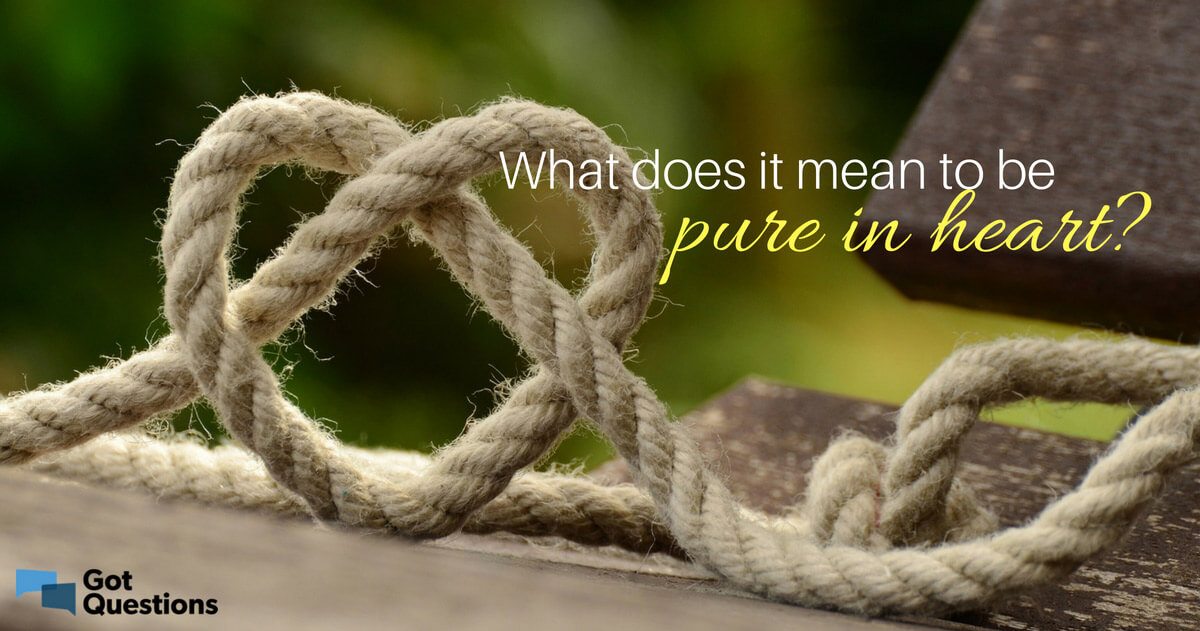Lenten Devotional – TUESDAY, Mar 16: HEART
The ‘heart’ is the source of purity in this Beatitude. We might translate it as inner attentiveness to ethical intentions and spiritual seeking. And how this mindfulness shapes our outward actions. It involves cultivation of a faithful spiritual life. Richard Rohr observes, ‘When the heart is right, Jesus says, seeing will be right. He ties together heart and sight.’
The heart becomes a lens that directs perception and offers a focal point. The Expositor’s Greek commentary says, ‘That purity is in the heart, the seat of thought, desire, motive, not in the outward act, goes without saying from Christ’s point of view.’ As mentioned in yesterday’s reflection, mindfulness heightens the sense of the pure in heart. Others might miss the revelations that are available to those who become single-minded or whole-hearted in their quest to follow Godself.
In some faith traditions, such as the Sufi tradition, practitioners strive to immerse themselves in the presence of Godself, to lose all sense of boundaries and become deeply connected to the eternal. Such an experience may be fleeting, yet it is life-defining. Knowing Godself — or objectively to reach enlightenment — is the sole ambition of mystics and seekers across many traditions of the world.
The pure of heart, in this blessing, are promised to see God. This is, indeed, to attune oneself to a revelation that is beyond the reach of most people, since we’re distracted and Godself remains veiled from us, unless we pay attention. — Rev Gail
MEDITATIONS:
The awakened heart and mind can be experienced as clarity itself, pure knowing. — Jack Kornfield
Grown men can learn from very little children for the hearts of little children are pure. Therefore, the Great Spirit may show to them many things which older people miss. — Black Elk
… it almost surprised me the other day when something was said about the “fundamentals of the Christian faith,” and I thought to myself—“I think I know what those are.” Love God. Love people. It seems so simple and so obvious, but it took me three years of serious doubt, two years of study, an ongoing sense of skepticism, a trip to India, a blog, and a book to really figure this out for myself. … Love is fundamental. It’s more important than being right. It’s more important than having all our theological ducks in a row. It’s more important than any commitment to absolute truth or a particular hermeneutic or a “high view” (read: “my view”) of sovereignty or the Bible or faith or the Church. — Rachel Held-Evans
Blessed are the agnostics. Blessed are they who doubt. Those who aren’t sure, who can still be surprised. Blessed are they who are spiritually impoverished and therefore not so certain about everything that they no longer take in new information. — Nadia Bolz-Weber
Perhaps pure reason without heart would never have thought of God. — Georg C. Lichtenberg
Challenge or Question: What spiritual practices have you used, that you find you desire to continue, that support bringing your whole heart into connection with God?
Lenten Devotional – MONDAY, Mar 15: PURE
Pure. This word is full of virtue, isn’t it? It suggests something that is untainted, untouched, or in archaic terms, virginal. In some contexts, it means something cleansed, sanctified, and set apart.
Can you take your heart — metaphorically — out of your chest, divided from the whole of yourself? Separate it from body, mind, and spirit? Wall it off? Keep it away from the world and focus it only on holy thoughts? No. Your heart is integral to the fullness of your being.
And yet, pure can means a singular focus on Godself: feeling, thinking, and choosing with a whole and holy heart. One commentary described such people as those who are ‘… single-minded … who seek the kingdom as the summum bonum with undivided heart.’ And Søren Kierkegaard wrote, ‘purity of heart is to will one thing.’
Arguably, the point of the Beatitudes is not about achieving or aspiring to perfection; it is about mindfulness and intention. It involves interior motivations and attentiveness.
After all, as we’ve already discussed during Lent, who among us ever achieves perfection? Actually, there’s a good reason for the wisdom saying that ‘perfection is the enemy of good.’ When we aim to be perfect, we become so paralyzed and our goal so unattainable, that we may experience the law of diminishing returns. If we try to be perfedct, we may never attempt anything or take any risks or ever complete any thought or work or deed. Thus, let’s put aside the idea of ‘pure of heart’ as being perfect.
The Beatitudes aren’t generally about separating ourselves from everything around us. Rather, they’re aimed at living here and now, in this world, in these times, deeply engaged in the reality wherein we find ourselves.
What, then, does it mean to be single-minded and whole-hearted for God within this world? It certainly means that we don’t live as if we’re set apart. Rather we live in this world, believing that Godself is active and tangible and revealed all around us, in each other, and inside ourselves.
Since pure, here, is spiritual and focused within our hearts and minds, let’s call it a state of being. The contemporary language of The Message uses this idea, ‘You’re blessed when you get your inside world—your mind and heart—put right. Then you can see God in the outside world.’
Let’s pick up the idea of perception. The Message says that if your inner perception is attuned, it will help you see God everywhere else, too. Another commentary by Ellicott suggests that ‘“purity of heart,” so far as it exists, brings with it the power of seeing more than others see in all through which God reveals Himself—the beauty of nature, the inward light, the moral order of the world, the written word, the life and teaching of Christ.’
Theologian Whitley Strieber paraphrases this Beatitude as, ‘Blessed are those who do not hate, for God shall be their companion.’ Thus we can also consider ‘pure’ single-mindedness and whole-heartedness to be focused on healthy ways of seeking and expressing love. God’s agape love as the ultimate example of what love can mean for us.
Love in its healthy, holy and pure condition seeks sustainable and positive emotional, psychological, and spiritual choices, in every possible circumstance. Chooses to turn from hate, however difficult that may be. Opts for compassion and friendship and affection and healthy passions. Strives for enlightenment. Follows the Way of Christ.
Can you recognize yourself as pure, if you think about yourself being single-minded or whole-hearted? — Rev Gail
MEDITATIONS:
There is nothing more pure and beautiful than a person who always speaks truthfully with a childlike heart. ― Suzy Kassem
A pure heart is nothing more than being real with God, and not pretending to honor and adore Him. Will you do this? Give God praise freely? ― Shelena Griffiths
We are not sent into this world mainly to enjoy the loveliness therein, nor to sit us down in passive ease; no, we were sent here for action. The soul that seeks to do the will of God with a pure heart, fervently, does not yield to the lethargy of ease. — Dorothea Dix
Great thoughts and a pure heart, that is what we should ask from God. — Johann Wolfgang von Goethe
Challenge or Question: What captures your attention? When can you say you have been single-minded or whole-hearted? Do these interests and passions lead you closer or further from connection to holy love?
Mar 14 Worship: Lenten Sunday – Beatitudes
Lenten Devotional – Week 4
Matthew 5: 7-8
“Blessed are the pure in heart, for they will see God.”
“Blessed are the peacemakers, for they will be called children of God. ”
SUNDAY, Mar 14: BLESSED
Some translators use the word ‘happiness’ as another meaning for ‘blessed.’ As if the blessing confers a state of happiness upon those who have been named.
Yet in the upside-down world of the Beatitudes, often those who are named as blessed are also those grappling with complex personal and societal challenges. They’re living in or addressing poverty. They’re naming weaknesses and faults and vulnerabilities. They’re facing injustice and oppression. They’re living in times of lack and inequality. Happiness would seem a far-off state of being.
In this week’s Beatitudes, the blessing falls on those who are pure of heart and those who choose peace. These are not people basking in contentment and easy living. These are people who are walking the Way in the midst of extremes. They’re choosing love over hate. They’re choosing a path of resistance and nonviolent revolution. They’re addressing personal problems and societal wrongs.
‘They’ is also ‘us.’ Remember, we’re often the folk who strive for such values. We want to live by these ideals of purity and peace-making. At our best, we act and speak in support of these characteristics.
Yet we know that we often don’t feel pure. Or peaceful. Or happy.
We fall short. Our hearts fall short. The world falls short. Rather than feeling happy, we’re disappointed. Frustrated. Angry. Afraid.
Perhaps it’s more helpful to use the word ‘joy’ rather than ‘happiness’ as the promise of ‘blessedness’. Happiness is like weather: fleeting and seasonal. Always-changing. Joy is the sky: deep and eternal, unaffected by the winds and rains, because it springs from a deeper, higher place. How else do we explain accessing humor, peace, hope, and joy in the hardest, most life-threatening times? Abiding joy is there: growing, rising, connecting us to the sacred love of God.
Yet in our daily living, we’re more aware of the weather than the sky behind it. We feel the immediate effects of emotions and circumstances, and question the blessing.
We’re susceptible to changing conditions. Being blessed — or happy — may not seem like a tangible, deliverable, real promise. A state of being available to us, here and now. Most of the time, we’ll struggle to imagine how the conditions named in the Beatitudes can lead to a blessing.
After all, we fall short of deserving such gifts. How can they possibly be true? That’s the beauty of the Beatitudes. Instead of asking us to be perfect, the Beatitudes bless us as we are: bundles of hope, desire, and aspiration. We’re full of potential, but we’re definitely not idealized versions of humanity.
The One who blesses us, also recognizes the value of our hunger. Our yearning. Our motivation. Our turning toward God. Our almost-honesty. Our love-seeking selves. Our desire to do what’s right. Our longing for peace.
By now, the Beatitudes have modeled for us, over and over, that we’re usually in a position to need more than we can give. We’re broken open. It’s that vulnerability that permits us to receive what is offered.
We are enough, just as we are. Beloved. Chosen. Claimed. Adopted. Welcomed. Wanted. As humans, we may reflect each of these Beatitudinal conditions and characteristics at different times in our lives. God will work through us, imperfect as we are, if we simply receive the blessing of love being poured out for us. — Rev Gail
MEDITATIONS:
Blessed is the influence of one true, loving human soul on another. — George Eliot
I’m blessed and I thank God for every day for everything that happens for me. — Lil Wayne
Blessed are those who give without remembering and take without forgetting. — Elizabeth Bibesco
Life is filled with tragedy, with long patches of struggle and with, I think, beautiful bursts of joy and accomplishment. Blessed with those moments, you just try to relax as much as possible and focus on the little things, like the joy of changing your baby’s diaper. — David Dastmalchian
Challenge or Question: Identify a blessing within your life. One aspect of your life for which you are grateful. Give thanks for it. Say a prayer, write it in a journal, or light a candle to acknowledge this blessing.


